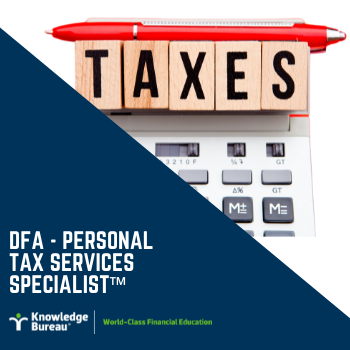T3 Trust Filing Requirements Change in 2021

Marco Iampieri B.A., JD, M.B.A.
A big new tax filing deadline is approaching and tax and financial advisors must make their clients aware: all non-resident trusts and most express trusts resident in Canada must start filing T3 returns for tax years ending on or after December 31, 2021 and the filing deadline is coming up fast: March 31, 2022. Here’s what’s at issue:
CRA wants to improve their collection of beneficial ownership in these trusts to better assess the tax liabilities owing both for the trust and their beneficiaries. Previously, trusts which had no activity during the year and/or no income taxes payable were not required to file a T3 return. But these exemptions will end after December 30, 2021 for the two types of trusts under the microscope.
The information to be collected includes:
- For each individual, settler, trustee and beneficiary:name, address, date of birth, residency and taxpayer ID, which includes SINs, Business Numbers (BN) and account numbers
 issued to trusts in Canada.For other jurisdictions, the equivalent IDs will be required.
issued to trusts in Canada.For other jurisdictions, the equivalent IDs will be required.
- For each person who can exert influence over the decisions made by the trustee in relation to the income and capital in the trust
The proposed legislative measures that surfaced in the Federal Budget of 2018 have not yet passed into law.
However, there are significant penalties for non-compliance. For these reasons, it is important to file as if the measures were law.
Penalties. A number of provisions under the Income Tax Act assess penalties for individuals and entities required to file a tax return or information return under the Income Tax Act. Failure to file return of income penalties are found under the Income Tax Act, Division 1 – Returns, Assessments, Payment and Appeals at section 162.
According to the T3 Trust Guide 2020, if you do not file the trust’s T3 return by March 31, 2022 for tax years ending on or after December 31, 2021, then the Canada Revenue Agency (“CRA”) will charge the trust a late-filing penalty.
The penalty is 5% of the unpaid tax plus 1% of the unpaid tax for each full month that the T3 return is late, to a maximum of 12 months. If there is no tax owing, a penalty may still be imposed. The penalty is $25 a day for each day the slip is late, from a minimum of $100 to a maximum of $2,500, for each failure to comply with the requirement to file the T3 return. The late-filing penalty will be higher if the CRA has issued a demand to file the T3 return, and the CRA assessed a late-filing penalty for any of the three previous years’ returns. In this case, the penalty may be 10% of the current year balance owing, plus 2% of the current year balance owing for each full month that the return is late, to a maximum of 20 months.
If an advisor or another individual is convicted of not filing a T3 return or T3 slip as required, the advisor or the other individual is liable to a fine of $1,000 to $25,000, or to a fine and imprisonment for a period of up to 12 months. The minimum penalty for failing to file a trust-related information slip by the due date is $100 and the maximum penalty is $7,500.
What trusts are affected? That’s the subject of next week’s article: New Tax Filing Rules for Express Trusts and Non-resident Trusts
Additional Educational Resources: Filing T3 Returns. This course introduces the types of trust that may be created in Canada and how each of them is taxed. You will learn how to prepare T3 returns as part of the case study exercises in the course. Case studies include the filing of trust returns, slips, and slip summaries for trusts.
Use of Trusts in Tax and Estate Planning. This course provides a detailed primer in the subject area featuring common true to life scenarios because every financial advisor who discusses tax, financial or investment plans with clients should have a basic understanding of the taxation of trusts in order to discuss estate planning options with clients.
For new entrants to Knowledge Bureau professional education programs, enrollments in both courses this month are featured for an introductory tuition fee of only $995. (Regular fees for the first course and only $100 more for the second). Use code ‘21NOV’ when you enrol online or call 1-866-953-4769 .
